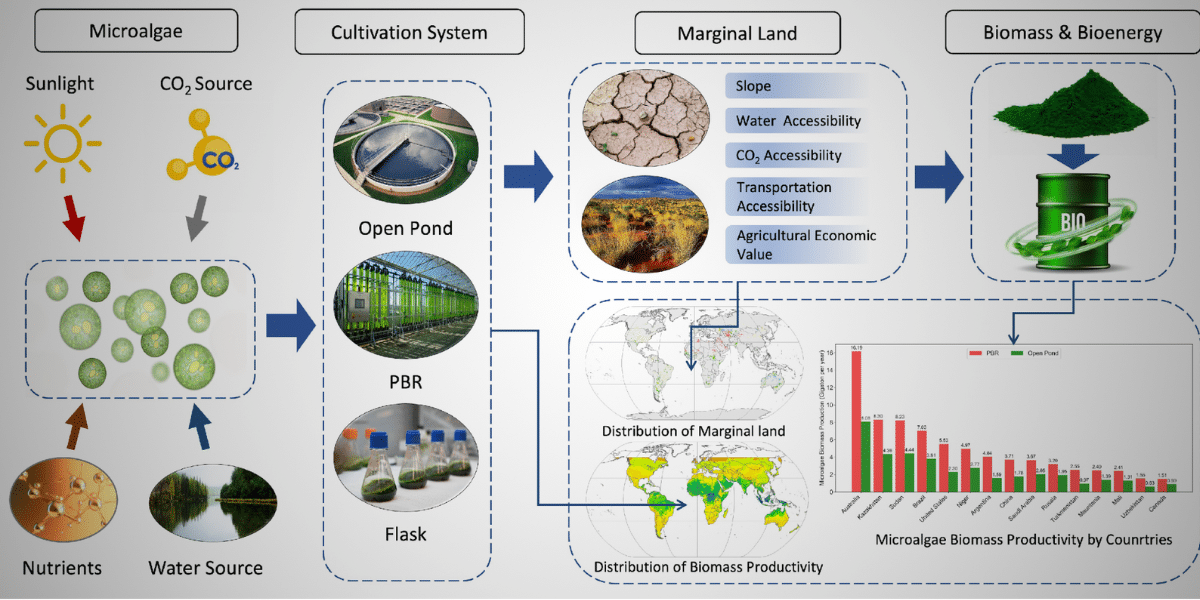By: PR Fueled
Minghao Chen, a researcher at Harvard University, is drawing attention with a notable study that could have significant implications for the future of renewable energy. In his latest work, Chen explores the vast potential of microalgae as a sustainable bioenergy source, offering a transformative solution to climate change and energy security. His pioneering research, combining advanced machine learning and innovative land use strategies, has drawn widespread attention in the scientific community, sparking discussions about its potential impact.
Currently pursuing a Master of Science in Computational Science and Engineering at Harvard, Chen has already made substantial contributions to environmental engineering. With a previous Master’s degree from MIT and a Bachelor’s from Sun Yat-Sen University, Chen’s academic career is a testament to his dedication and brilliance. His research interests lie at the intersection of machine learning, climate science, and sustainable energy, fields in which he has received numerous accolades, including the prestigious China National Scholarship.
Chen’s latest study, published in the Science of the Total Environment, is titled “Assessing Global Carbon Sequestration and Bioenergy Potential from Microalgae Cultivation on Marginal Lands.” It provides the first comprehensive global analysis of microalgae’s viability as a biofuel, identifying over 7.37 million square kilometers of marginal lands suitable for cultivation. These lands, located primarily in equatorial and low-latitude regions, offer a sustainable solution to the ongoing “food versus fuel” debate, utilizing underused land without competing with food crops.
Chen’s study employs advanced machine learning algorithms, specifically the Gradient Boosting Machine (GBM) model, to predict microalgae biomass productivity. By synthesizing data from over two decades of global microalgae cultivation, Chen’s research yields precise predictions of biomass productivity across diverse landscapes and environmental conditions, with significant implications for future bioenergy strategies.
Under ideal conditions using Photobioreactors (PBRs), Chen projects that up to 99.54 gigatons of microalgae biomass could be produced annually. This biomass could be converted into 64.70 gigatons of biodiesel, equivalent to 58.68 gigatons of traditional diesel, while potentially sequestering 182.16 gigatons of CO2—more than four times the global emissions forecasted for 2023.
Chen’s research identifies Australia as the top global contributor to microalgae biomass production, with other key countries including Kazakhstan, Sudan, Brazil, the United States, and China. The global impact of this work suggests a promising shift toward sustainable bioenergy sources.
Despite challenges in scalability, Chen’s work underscores the critical importance of microalgae cultivation in reducing fossil fuel dependency and combating climate change. “Our research demonstrates the immense potential of microalgae as a sustainable energy source,” Chen says. “By utilizing marginal lands and advanced cultivation techniques, we can significantly contribute to climate change mitigation.”
Supported by grants from the National Natural Science Foundation of China and other prominent institutions, Chen’s research marks a pivotal step towards achieving global energy security and environmental sustainability.
As nations worldwide scramble to curb their reliance on fossil fuels, Minghao Chen’s research offers a beacon of hope, outlining a viable path towards a greener, more sustainable future.
Published By: Aize Perez
















